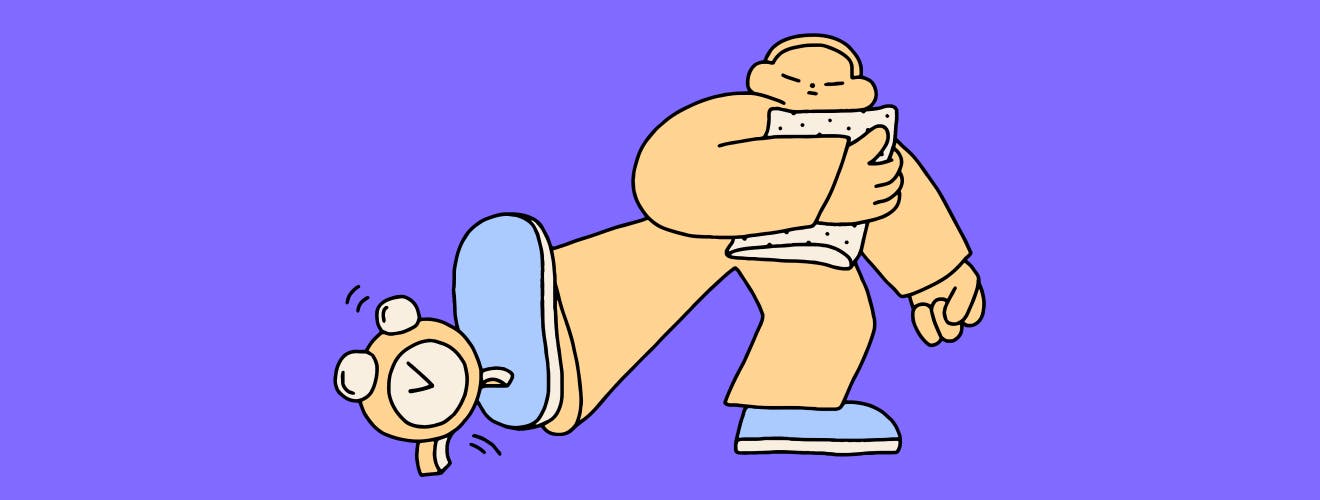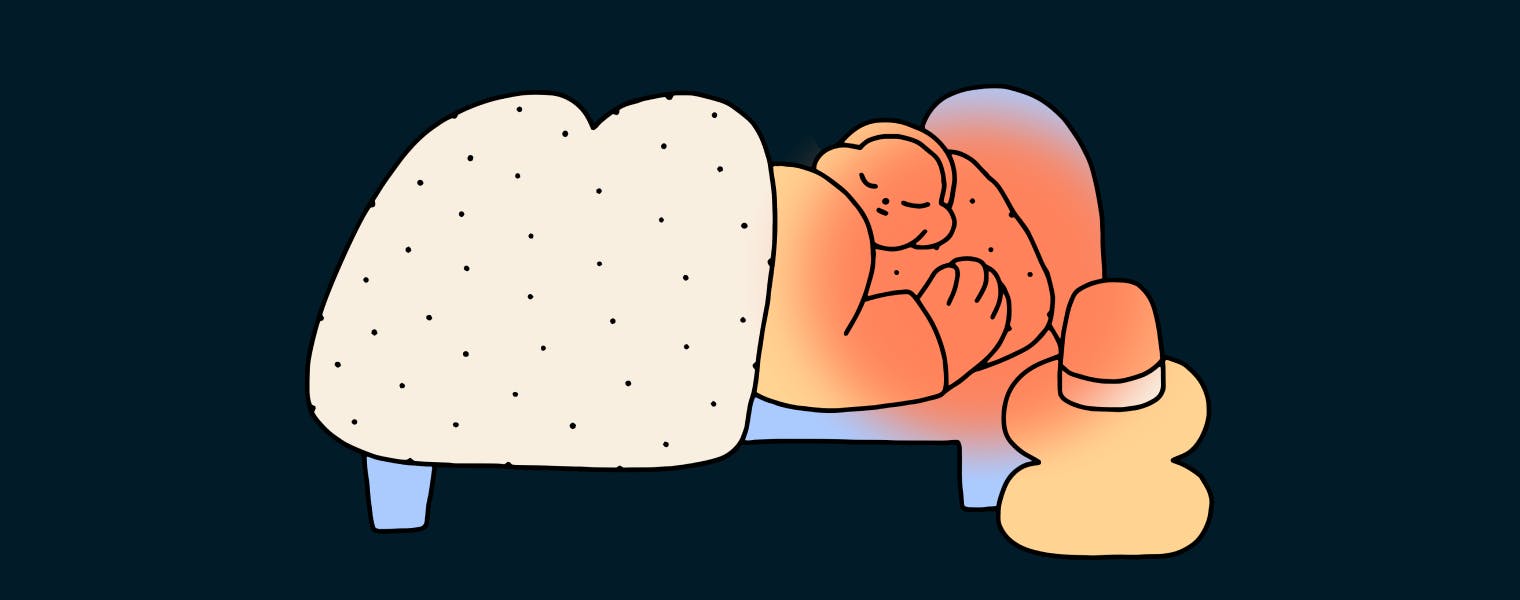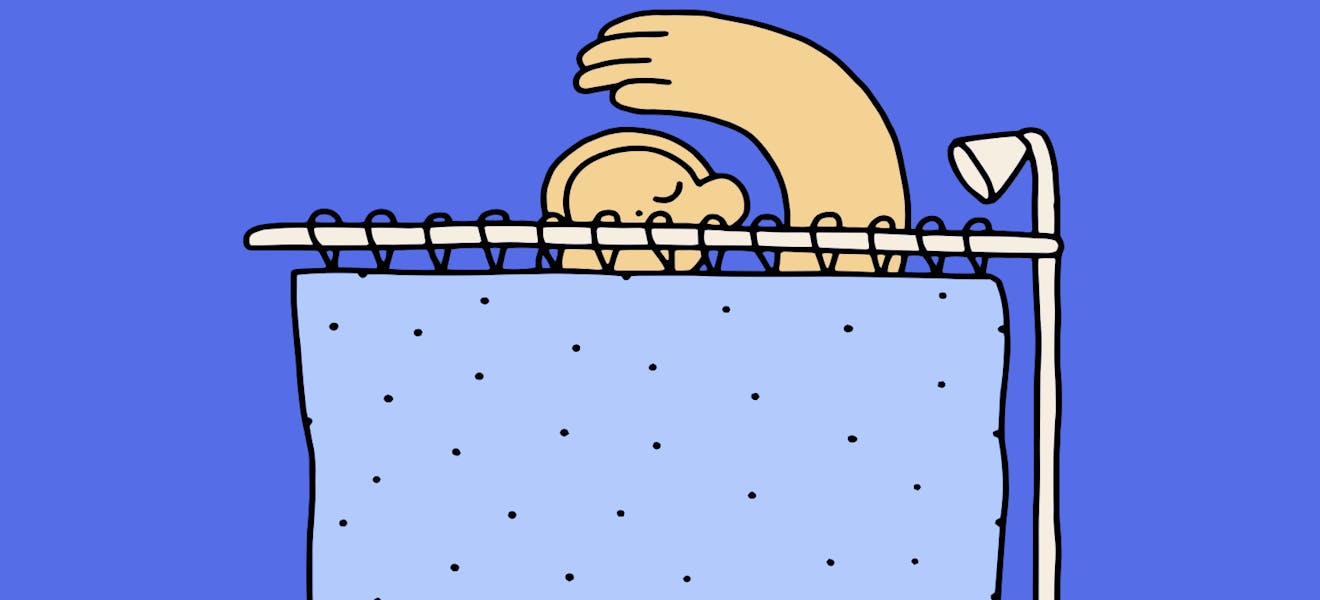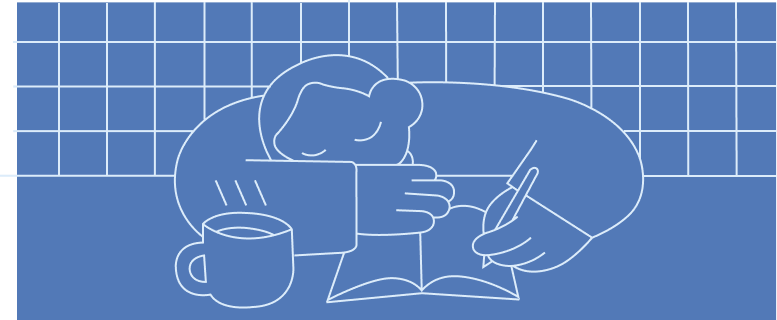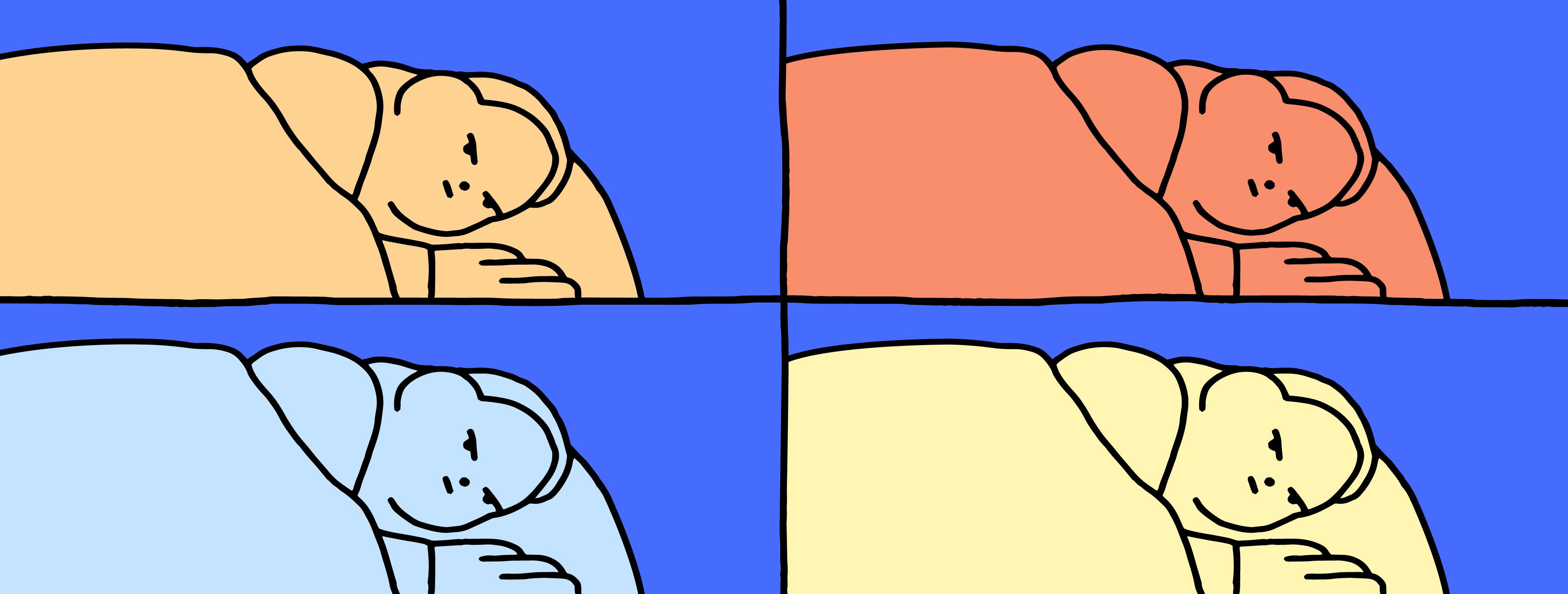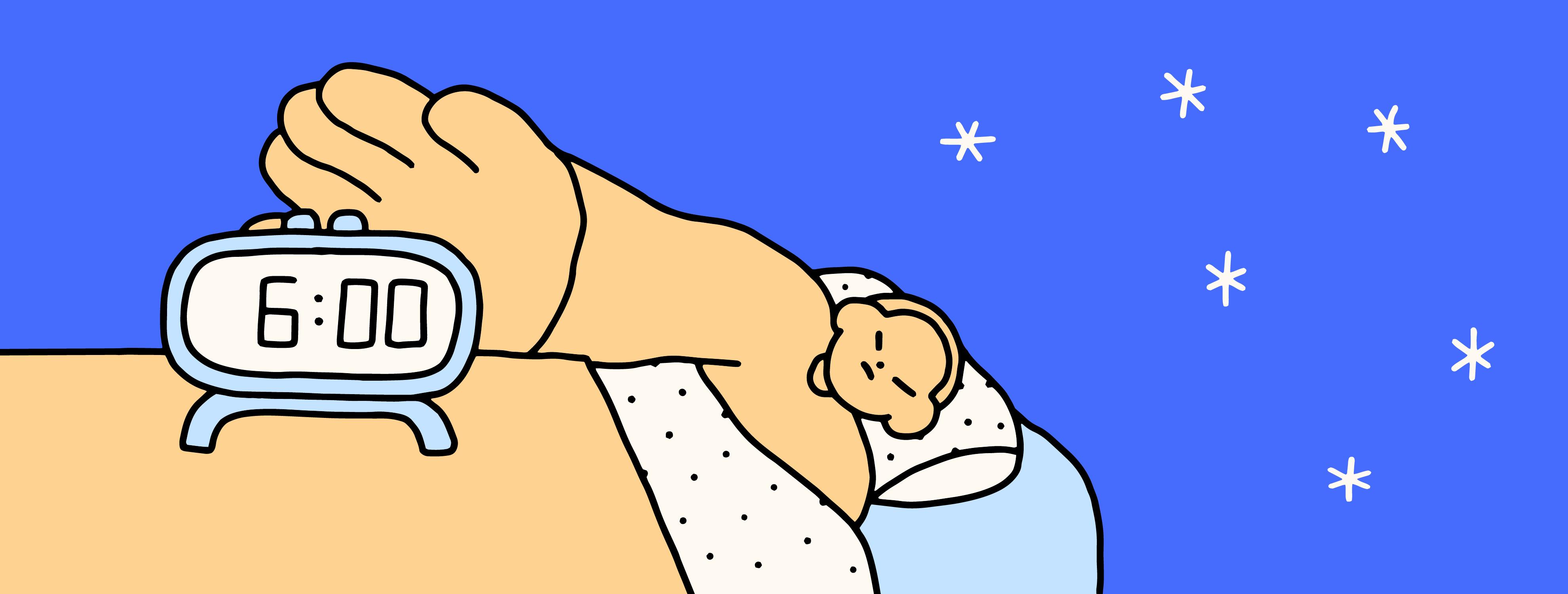What Is Transient Insomnia, and How Can I Avoid It?

Do you have trouble sleeping or staying asleep through the night? Are your circadian rhythms or sleep patterns out of whack after traveling through different time zones? Do you experience stress, anxiety, depression, or apnea that regularly disrupt your sleep schedule? If so, you may be experiencing transient insomnia, a common sleep disorder characterized by delayed sleep onset, trouble or difficulty falling asleep, and periodic sleep apnea episodes.
Transient Insomnia vs. Acute Insomnia vs. Chronic Insomnia: Understanding the Differences
Insomnia has two basic categories: short and long-term insomnia. As the name indicates, long-term insomnia is characterized by periodic episodes of sleep loss and can last up to more than three months.
In contrast, short-term insomnia lasts for a few days or weeks and occurs in the form of brief episodes that cause difficulty sleeping.
Insomnia can only be diagnosed through a clinical evaluation conducted by a family physician, according to the Academy of Sleep Medicine.
Both these sleep disorders are further divided into acute, transient, and chronic insomnia.
Acute Insomnia
Short-term insomnia is also called acute, adjustment, or temporary insomnia. It may last anywhere from a single night to several weeks. Acute insomnia can have underlying causes and be triggered by stress, nervousness, anxiety, and any traumatic event such as a car accident or depressing medical diagnosis.
Here are a few signs and symptoms associated with acute insomnia:
- - Difficulty falling asleep
- - Difficulty staying asleep
- - A much-dropped attention span and focus
- - Tiredness or morning fatigue
- - Vocal dysfunction (increased speech errors)
- - Any bodily changes that may not be present before (headaches, stomachaches, etc.)
Transient Insomnia Symptoms
Transient insomnia is characterized by sleep loss that lasts anywhere from a few days up to three months. It can be caused by depression, temporary sleep deprivation, or sleep schedule interruption. The condition does not require medical treatment.
You can identify transient insomnia by looking for the following symptoms:
- - Having a hard time falling asleep
- - Interrupted sleep
- - Waking up at the slightest disturbance
- - Not feeling rested after a long night's sleep
- - Becoming irritated at a minor inconvenience
- - Having a hard time remembering and recalling things
Chronic Insomnia
Chronic insomnia has a long and specific tenure, a generally long history of having a hard time falling, trouble staying asleep, and delayed sleep onset. If you're unable to fall asleep three out of seven days a week consistently for three months or more, chances are you're suffering from chronic insomnia.
This type of insomnia is much more dangerous than the other two disorders. After all, the less sleep you get, the more likely you are to experience an accident at home or behind the wheel. Fortunately, chronic insomnia can be treated through the use of antidepressants, OTC drugs, and sedative-hypnotics, according to the American Academy of Sleep Medicine.
The signs or symptoms that can tell if a person has chronic insomnia include:
- - Difficulty staying asleep
- - Failing at going back to sleep once woken up
- - Finding it hard to recall easy incidents (last meal you had, last place you were at)
- - Feeling easily annoyed and enraged at very insignificant events
What Causes Transient Insomnia?
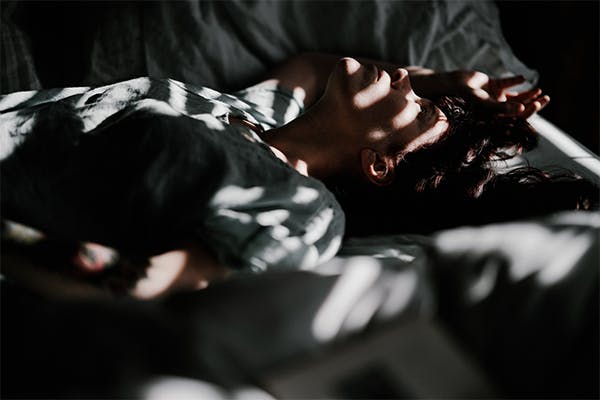
Transient insomnia can occur due to any behavioral or habitual changes. A change in environment can also lead to short-term insomnia. In particular, many people find it difficult to fall asleep in new houses or hotel rooms.
Here are a few underlying factors that can cause transient insomnia:
Stress
Stress is a major precursor of a lot of physical and mental health disorders. Any issues with the digestive system, respiratory system, and cardiovascular system can occur because of stress. Long- or short-term stress can prevent you from experiencing good sleep and lead to sleep loss.
Any stressful event like failing at school or work, family problems, and an accident can affect good sleeping patterns. Insomnia is found to be more common in people with anxiety disorders or depression.
Grief
The loss of a loved one is a painful event for anyone. Though grief itself does not initiate insomnia, unpleasant thoughts, bad dreams, and the anxiety caused by bad dreams can lead to insomnia. Around forty percent of people have insomnia after experiencing the death of a loved one
Alcohol/Drug Abuse
Liquor can initially act as a sedative, but it can become an insomnia-causing agent as time passes. The first few hours after intake would be restful, followed by a sudden break in sleep and eventually an entire night of wakefulness.
Traumatic Events
An irregular, erratic sleeping pattern is a common outcome of post-traumatic stress disorder. After a traumatic experience, many people find it difficult to fall asleep, remain sleeping, and go back to sleep once woken. Hyperarousal is the common cause of insomnia after trauma. It is said that out of every 10 people who suffer from PTSD ,nine will experience some kind of insomnia.
Jet Lag
When traveling across multiple time zones, insomnia can occur due to jet lag. Because of changes in the body's internal clock, the mind finds it difficult to adjust to the new times and ends up in failed sleep.
Daylight Savings Time
A schedule change can cause most people to lose sleep. People tend to go to sleep early during daylight savings not to skip sleep, but this proves counterproductive and triggers insomnia.
Changes in Diet
Sleep plays a vital role in the diet. Similarly, a good diet can ensure improved sleep. Empty calories or refined carbs can trigger insomnia. A good and well-balanced diet will always induce sleep.
How Can I Prevent Transient Insomnia?
In most cases, prevention is better than a cure. Read on below to learn how to ward off transient insomnia.

Practice Mindfulness and Meditation
Meditation is a relaxing technique. It helps ease your mind and puts it at rest. Meditation can prevent insomnia from developing into a long-term problem or medical condition by inducing sleep. An overall sense of calm should overtake the body once you meditate ten to fifteen minutes before sleeping.
Keep Room Conditions Dark Enough
The absence of light indicates the time to sleep. Simply put, darkness is critical for good sleep. We are wired to accept that light indicates wakefulness and that the dark symbolizes rest. Installing curtains and shades in rooms can guard against unwanted light.
Avoid Big Meals and Caffeine Before Bed
By eating big meals, you inadvertently prolong your digestion. Prolonged digestion leads to delayed sleep, which is why it is advised that you enjoy a lighter meal for dinner. Similarly, caffeine can also delay sleep by overhwleming the nervous system. If you ingest coffee
Improve Your Sleep Hygiene
Good sleep hygiene ensures that all the above requirements are met. A dark, well-ventilated room with little to no light is essential for good sleep. Meditating before sleep or a sleep time workout will help your muscles relax, allowing sleep to take over your body sooner, and lighter meals before bed are ideal for sleepless nights.
How Sandland Sleep Can Help
Transient insomnia is a sleep disorder that can decrease your quality of life and leave you feeling tired. Only a physician can diagnose it. If you've been unable to sleep for the past few days or weeks, you should seek medical advice, diagnosis, or treatment.
Your doctor may prescribe medications that can help you improve your sleep. If you want to avoid medication, supplements provide an effective alternative. This is where Sandland comes into play.
Sandland Sleep provides a holistic approach to your sleep problems by providing just the right herbal supplements and solutions to your short-term or transient insomnia.
Made from natural relaxation-inducing substances like CBN, terpenes, and peppermint, theFall Asleep formula can help you slip into sleep, and ourStay Asleep formula can keep you there until throughout the night, allowing you to enjoy the kind of sleep that you deserve.
The ability to remain sleeping throughout the night is called sleep maintenance insomnia. Due to even the slightest of disturbances, you find yourself up and awake, facing a hard time falling back to sleep. You can say you have sleep-maintenance insomnia if you wake up at least once during the entire might and cannot fall asleep until after half an hour.
Failing at initiating sleep is known as sleep-onset insomnia. In the first half an hour of laying down, sleep does not come. This is a major sign of sleep-onset insomnia. This type of insomnia is closely related to tossing and turning around in bed until sleep comes.
Transient insomnia occurs in all groups of age. Children and adults both go through short-term insomnia. However, this is more common in pregnant women and post-menopausal women.
Both acute and transient insomnia can last upwards of a month. The tenure for chronic insomnia is three months and more. If transient insomnia occurs repeatedly and is not fixed, it can quickly become chronic.
